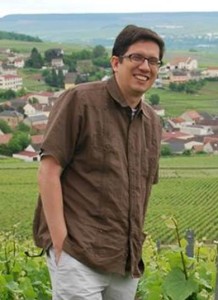This academic webinar was presented by Gerardo Gonzalez, Sociologist and Lecturer at Instituto de Estudios Superiores de Administración (IESA) and the Universidad Metropolitana.
Watch the webinar below:
Webinar content:
1. Introduction of the Speaker: 00:05- 00:39
2. Presentation: 03:02 – 32:24
3. Questions and Answers: 32:26 – 47:57
Webinar Summary
This webinar talk will analyze the civic struggle in Venezuela that took place in 2014. Using Peter Ackerman and Hardy Merriman’s A Checklist for Ending Tyranny, the presentation will evaluate the skill-based and organizational capabilities of protesters as well as trends of nonviolent conflict in the country last year. Although Venezuela´s political crisis has received significant international media attention, no scientific analysis has been done on the relationship between civil resistance, nonviolent action and political polarization in the country. The webinar will examine the interactions between different actors involved in the conflict, tactics employed by protesters, and analyze why organizers failed to meet their goals.
The Venezuelan opposition led by the student movements, opposition parties, civic organizations and parts of civil society planned a number of civil resistance actions but their efforts to expand participation and protest activities were hampered by media censorship and, more importantly, by a lack of nonviolent discipline. Violence undermined the momentum of the movement and helped support the narrative put forth by the government. Finally, the webinar will discuss challenges and opportunities for public dissent and mobilization in spaces where communication and information are censored and societal distrust among two equally divided and opposing groups is high, which are the characteristic features of Venezuelan society.
Presenter

Gerardo Gonzalez is a Venezuelan sociologist who studies violent and nonviolent protests in Latin America. He has a B.A in Sociology from the Universidad Central de Venezuela and a Masters in Latin American Studies from CEDLA, the Centre of Latin American research and Documentation of the University of Amsterdam. As part of his work he conducts research and public opinion polls on socio-political processes and changes in Venezuela. He currently teaches at Instituto de Estudios Superiores de Administración (IESA) and the Universidad Metropolitana in Caracas. He works mainly with young people, political parties and social movements interested in social participation, non-violent protests and networking. He has coordinated a number of youth programs on leadership, trying to create networks of people to fight for social, human, political and cultural rights all over the country. Lately he has done research on political communication, participatory politics, and nonviolent protests. He is currently working on the first major study on protests in Venezuela.
Additional Resources
“Venezuela.” Country profile by the Economist, last updated April 9, 2015. Available Online
“Venezuela.” Country profile by the Guardian, last updated April 22, 2015. Available Online
“Venezuela.” Country profile by the New York Times, last updated April 11, 2015. Available Online
Venezuelan organizations (websites in Spanish):
-COFAVIC: Organización no Gubernamental para la Protección y Promoción de los Derechos Humanos
-Foro Penal Venezolano
-Observatorio Venezolano de Conflictividad Social Observatorio Venezolano de Conflictividad Social